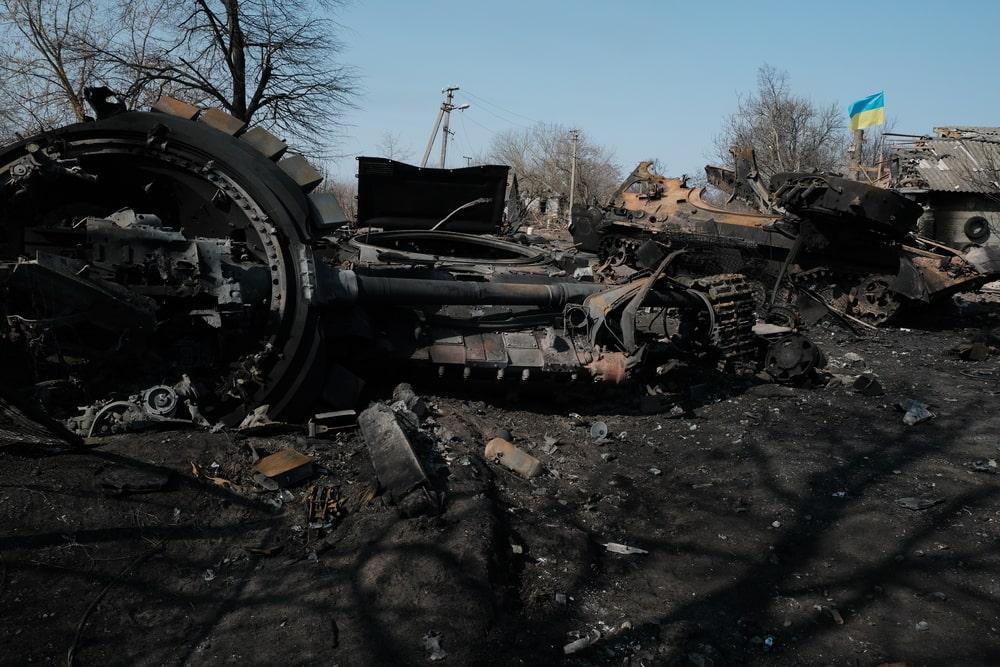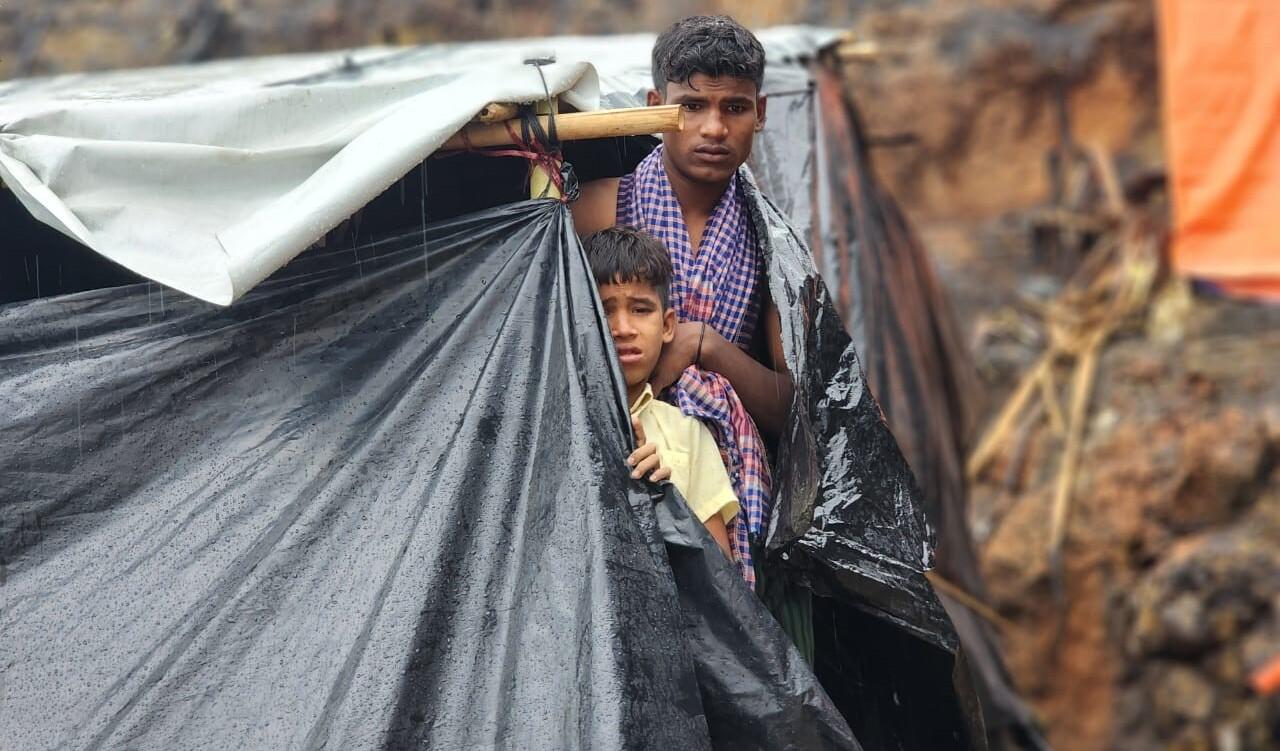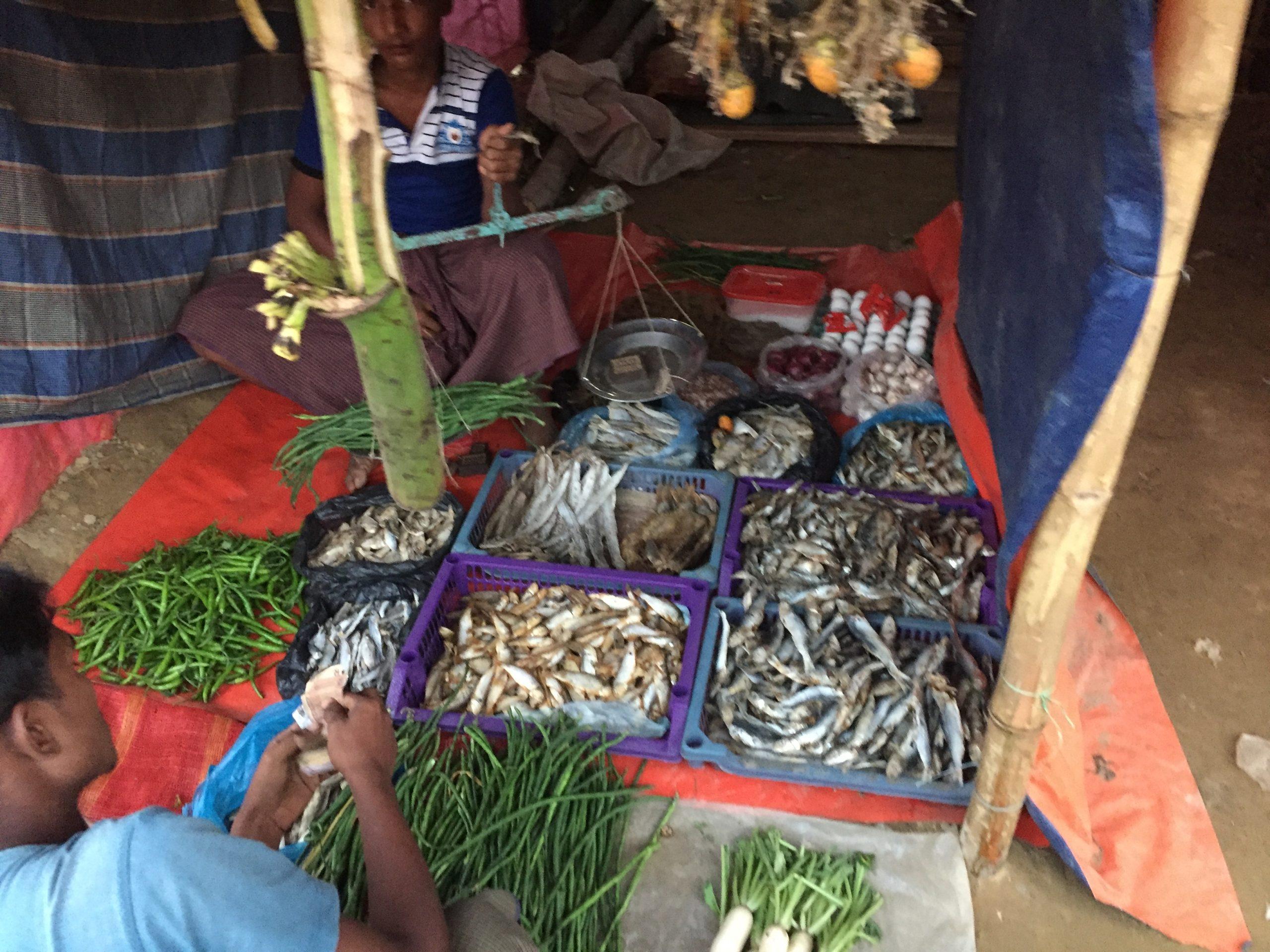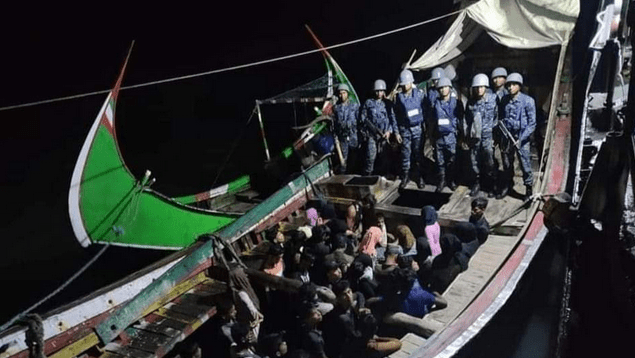Burma Rains have come to the Rohingya, already reeling from the effects of massive fires…

Burma, Ukraine, and the Risk of Short-Sightedness
Op-Ed
June 1, 2022
By Zoe Lee
Bio: Ms. Lee is a Program Associate at Burma Task Force and a fellow of the NYU Gallatin Global Fellowship in Human Rights
The invasion of Ukraine is a tragedy, there is no question on that front. What the Ukrainians have been subject to is abhorrent; the world has witnessed the depths of human depravity.
Though we see this clearly at this moment, we all have a tendency to be short-sighted. There is a habit both in the human rights industry and the public eye to pay close attention to a crisis in its early stages, but there is a similar tendency to gradually lose interest as crises pile upon crises and eventually what we cared about, what we advocated for, what we poured our efforts into fades from our vision. We pay attention to the crisis in Ukraine for now, but what happens six months from now? Two years from now? When do we lose interest in the suffering of millions? When does it fail to capture our interest anymore?
There is something sinister about tragedy as entertainment, that our hearts are moved only when blood is put before our eyes constantly, that aid is motivated only by the most extreme and visible suffering. The human ability for compassion is undoubtedly a powerful motivator for change, but it cannot be the only one.
The latest and most destructive chapter of the Rohingya crisis began in 2015, seven years ago. It never ceased being a crisis. I bring this point up for two reasons. Firstly, I hope to make you recognize that the conflict in Ukraine may easily face the same fate as the crisis of the Rohingya; as this war of attrition drags on, as our interest wanes, the people we so fiercely defended may lose our support. Secondly, I hope to instill in you an understanding that this does not need to happen. It is possible to sustain support in the form of aid. Though the case of the Rohingya and that of Ukraine are vastly different in history and politics, there remains a throughline between the two. Only if we understand this throughline can we begin to take action to remedy our often fickle collective responsibility. That requires a thorough look at policy regarding the Rohingya.
At first, these two tragedies began as “isolated” battles. The Tatmadaw slaughtered the Rohingya to drive them from their ancestral lands, and Russia fought Ukraine for control over Crimea. These two battles did not remain isolated though. Soon the Tatmadaw was no longer satisfied with its genocide, and, searching for greater power, began to root out any civilian dissent, culminating in the overthrow of the civilian government of Burma. Russia, likewise, no longer content with its control over Crimea, further invaded Ukraine, intent on overthrowing the democratically elected government and installing a Russian puppet government.
This is where we begin to see a split in trajectories. The battle for Crimea elicited a response from the West, but clearly not a timely response because Russia then attempted to invade the remainder of Ukraine. At that point, the West intervened on behalf of the Ukrainian people even though it was not obliged to do so. It is because of this intervention both with economic pressure and with arms support that Ukraine has been able to withstand the Russian onslaught. This is the path that can be drawn when those in dire situations receive support.
I want you to keep this trajectory in mind. The trajectory of Burma shows the polar opposite. The genocide of the Rohingya was widely condemned, but there was little concrete material support for either Rohingya or for democracy, and as time passes, support wanes all the more, even for refugees. That failure was the first step, what I have compared to the weak international response to the invasion of Crimea. Then the next step came. With the lack of sufficient international response, the Tatmadaw felt more emboldened than ever before to overthrow the civilian led government and to crush civil dissent. This is the step that is in progress at the moment, and this is the step in which the West intervened for the sake of Ukraine.
But not here. Not in Burma. This disparity in response is clear. There is inaction despite what the most recent Amnesty International report finds: attempts to crush dissent have reached a new degree of horror with incessant shelling in Kayin and Kayah states. As in Ukraine, collective punishment has become the core strategy. Targeting of civilian areas becomes increasingly commonplace. Village burnings and extrajudicial killings increase in regularity, and obstruction of humanitarian aid threaten to kill thousands more.
This is what happens when we do not stand united as we did for Ukraine. We were willing to bear the economic cost of sanctioning Russia, and Europe seems increasingly ready to bear the costs of cutting Russian oil. We are willing to accept these costs for democracy and the rights of Ukrainians. Why are we unwilling to do the same for the people of Burma? Why are we so reluctant to make any move? Why has the BURMA Act stalled for so long in the Senate?
The public and policymakers cannot be motivated by temporary empathy or only when we are constantly confronted with images of bloodshed. We need a sustained approach to these issues, for the sake of Burma, Ukraine, and any state that may face what these two states have faced. We need sustained political will to protect sovereignty, a willingness to accept the costs that the preservation of human rights may inflict, and a united front.
For these three requirements to be met, there is action needed on our part, on the part of state governments, and international bodies. At the grassroots level, there is a need for us to push representatives and governments to act; for us to have the political will to demand action from our leaders. There is a need for those leaders to unite to send a clear and effective message to the Burmese Tatmadaw. There is a need for these leaders to use international bodies the way they were intended to be used; to mobilize the UN Security Council and hasten justice at the International Criminal Court. More than ever there is a need for unity across the most powerful players; the EU, the US, China, ASEAN, among many others.
Only with these elements can we ensure that similar tragedies, if they befall us, do not follow the trajectory of Burma. It is also with these efforts that we can ameliorate the current situation in Burma in which an estimated 14 million people within the state are in need of humanitarian assistance.
The people of Burma bear the price of our inaction. We can do more. We must do more.



